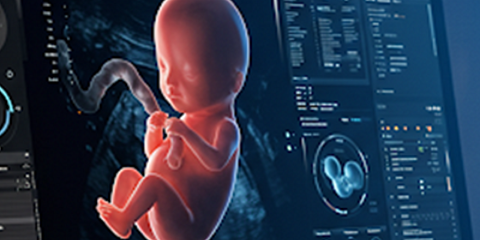
World Health Day in the AI revolution era
April 7, 2025
Today, April 7th, the world unites to commemorate World Health Day, a date established by the World Health Organization (WHO) to reflect on the challenges and opportunities in the field of global health. Each year, World Health Day focuses on a specific theme, and this 2025 marks the beginning of the "Healthy beginnings, hopeful futures" campaign, focused on the health of mothers and newborns.World Health Day, celebrated annually on April 7th, is an initiative by the World Health Organization (WHO) to raise awareness about global health issues. This year's theme, "Healthy beginnings, hopeful futures," emphasizes the importance of maternal and newborn health.
In addition to the new scientific advances and discoveries that allow us to have access to better medical and healthcare services, Artificial Intelligence (AI) has marked a turning point in the way we understand and practice medicine. In recent years, we have witnessed how AI has evolved its role from being a support tool to becoming a key element for the transformation of healthcare. This new ability to analyze huge volumes of data, identify complex patterns, and offer personalized solutions has opened up an unprecedented range of possibilities, from early diagnosis of diseases to the optimization of treatments and the improvement of hospital management.
In a world where everything happens so fast, and AI spreads through every corner with its infinite applications and variants, at Sngular, our focus is on applying "AI with purpose": a commitment to developing solutions that not only optimize clinical processes but also have a direct and positive impact on the lives of patients. We seek to make AI an ally in clinical decision-making, providing healthcare professionals with more precise and efficient tools, but at the same time, contributing to improving the patient experience, making them participants in their health and well-being through empowerment.
When we exempt professionals from administrative and repetitive tasks, we allow them to reconnect with the essence of their profession. In an environment where the tedious bureaucratic burden, endless records, and absorbing data management vanish, we allow professionals to refocus on what really matters: the patient. In this scenario, AI acts as a diligent assistant, automating documentation, streamlining appointment management, facilitating the interpretation of tests, and freeing up valuable time that translates into more personalized and compassionate care.
Well-applied technology adds a distinctive value by focusing on the human element. AI can and should be used to enhance the patient experience by automating tasks, allowing medical teams to dedicate more time to personalized care, and contributing to a more equitable healthcare system.
Patient Empowerment
Now we can, more easily, generate medical reports written in a clear and accessible language, facilitating the understanding of diagnoses and treatments. We are developing solutions that put the answers to their most frequent questions within reach of patients, providing virtual accompaniment and other support tools for caregivers. This not only improves communication with professionals or access to information but also fosters patient autonomy, allowing them to make informed decisions about their health.

Democratization of Health
By overcoming geographical and socioeconomic barriers, AI can bring accurate diagnoses and personalized treatments to marginalized and underserved communities. Telemedicine, powered by AI, allows virtual consultations with specialists, regardless of the patient's location. Mobile applications with chatbots can answer frequently asked questions and provide reliable medical information at any time and anywhere. With this type of application, we can build more equitable and accessible health systems, where information and medical resources are available to all people, regardless of their origin or condition.
Decision Support Systems
On the other hand, the combination of AI and human experience is opening new horizons in personalized and precision medicine, with AI becoming a support for clinical decisions. The Galen by Sngular platform is a comprehensive generative AI solution designed specifically for hospital environments that seeks to facilitate the work of health professionals, helping them manage large amounts of information and optimize their tasks. The application provides a safe space where healthcare professionals can interact with conversational assistants, helping to reduce the bureaucratic burden and allowing medical professionals to dedicate more time to direct patient care.
Privacy and security
Given the sensitive nature of medical information, the use of AI in healthcare carries a significant responsibility. Mishandling this data can have serious consequences for both patients and healthcare institutions. It is crucial to establish strong protocols to ensure data confidentiality, integrity, and availability. This includes implementing robust architectures, cybersecurity measures (like data encryption and strict access controls), and data anonymization techniques.
On this World Health Day, we find ourselves at the intersection of medicine and technology that, thanks to AI, is at a moment of unprecedented transformation. We not only celebrate the advances that save lives but also recognize the power of AI to personalize care, empower patients, and optimize health systems. With this "AI with purpose" we transform data into informed decisions; and privacy, into an inalienable right.
Our latest news
Interested in learning more about how we are constantly adapting to the new digital frontier?

Tech Insight
March 5, 2025
AI Governance: Challenges and Perspectives

Insight
February 18, 2025
The Transformative Power of AI in Health and Pharma

Tech Insight
February 11, 2025
Unlocking the tech potential in international pharmaceutical tender management

Insight
February 5, 2025
Pharmaceutical tenders: top 5 obstacles and how to overcome them